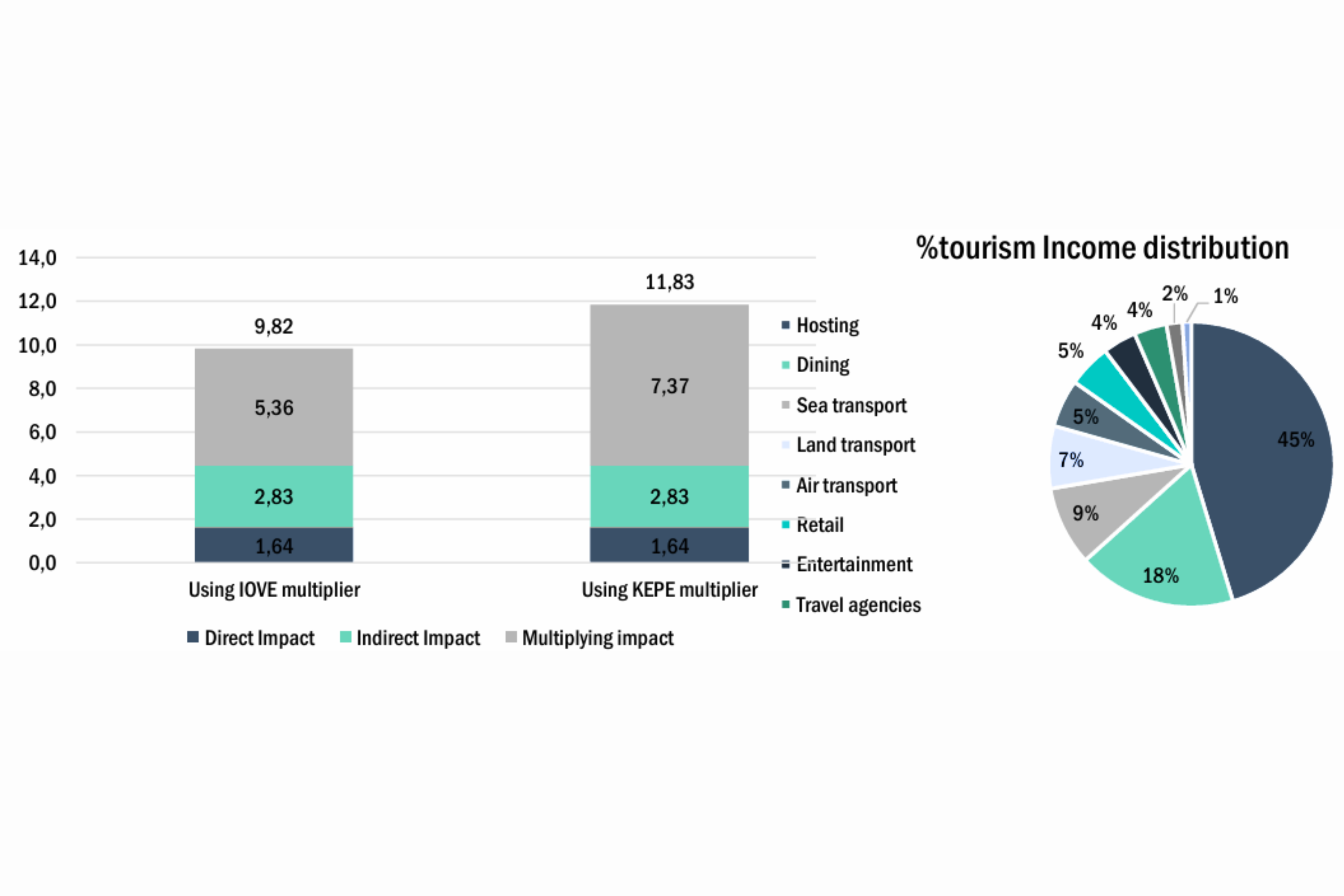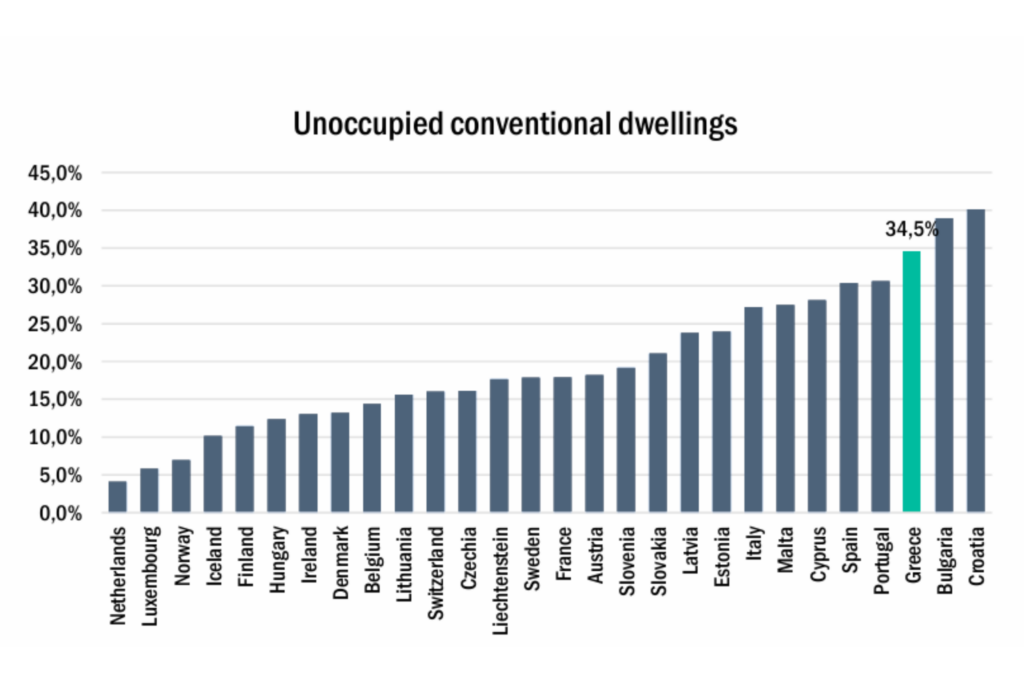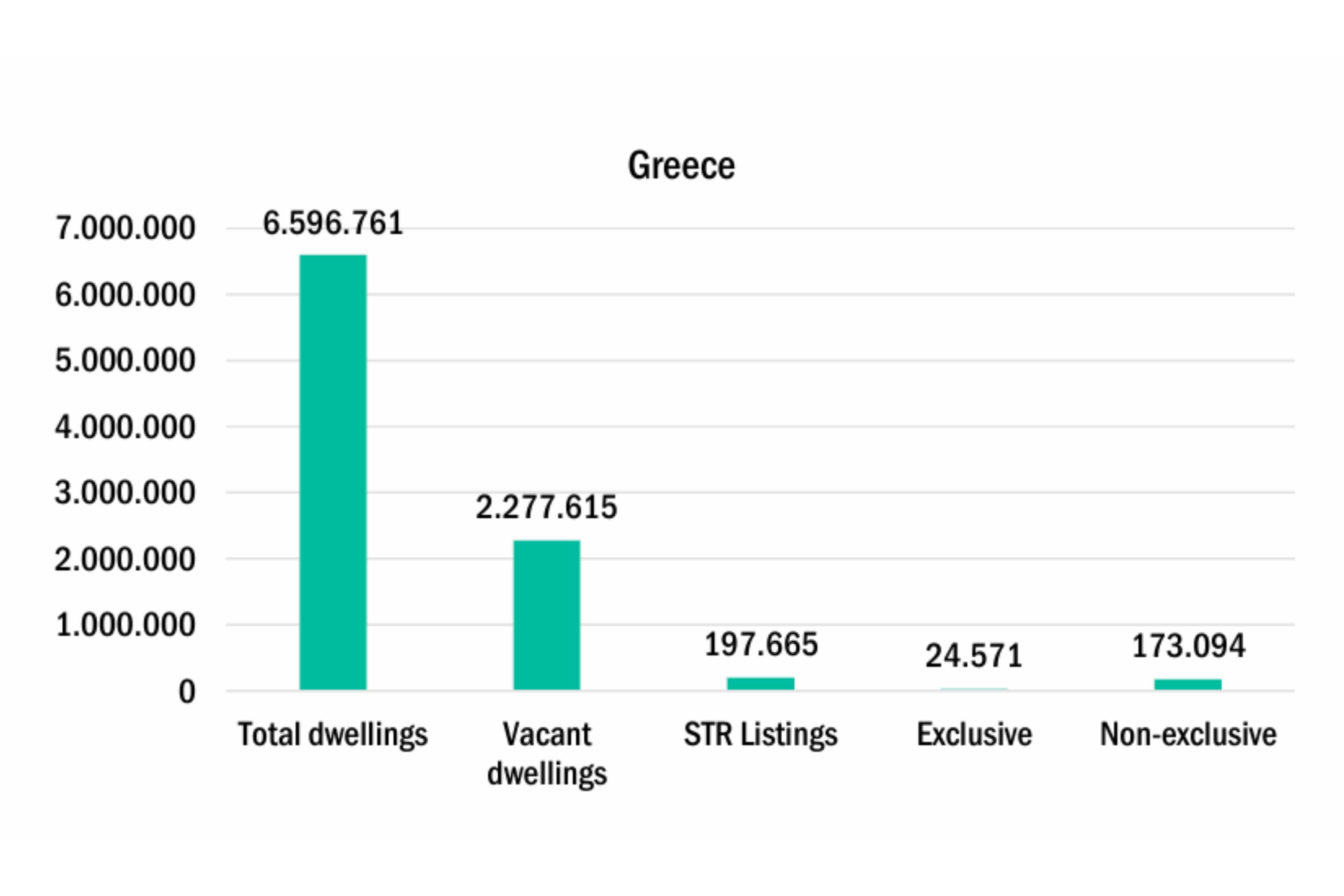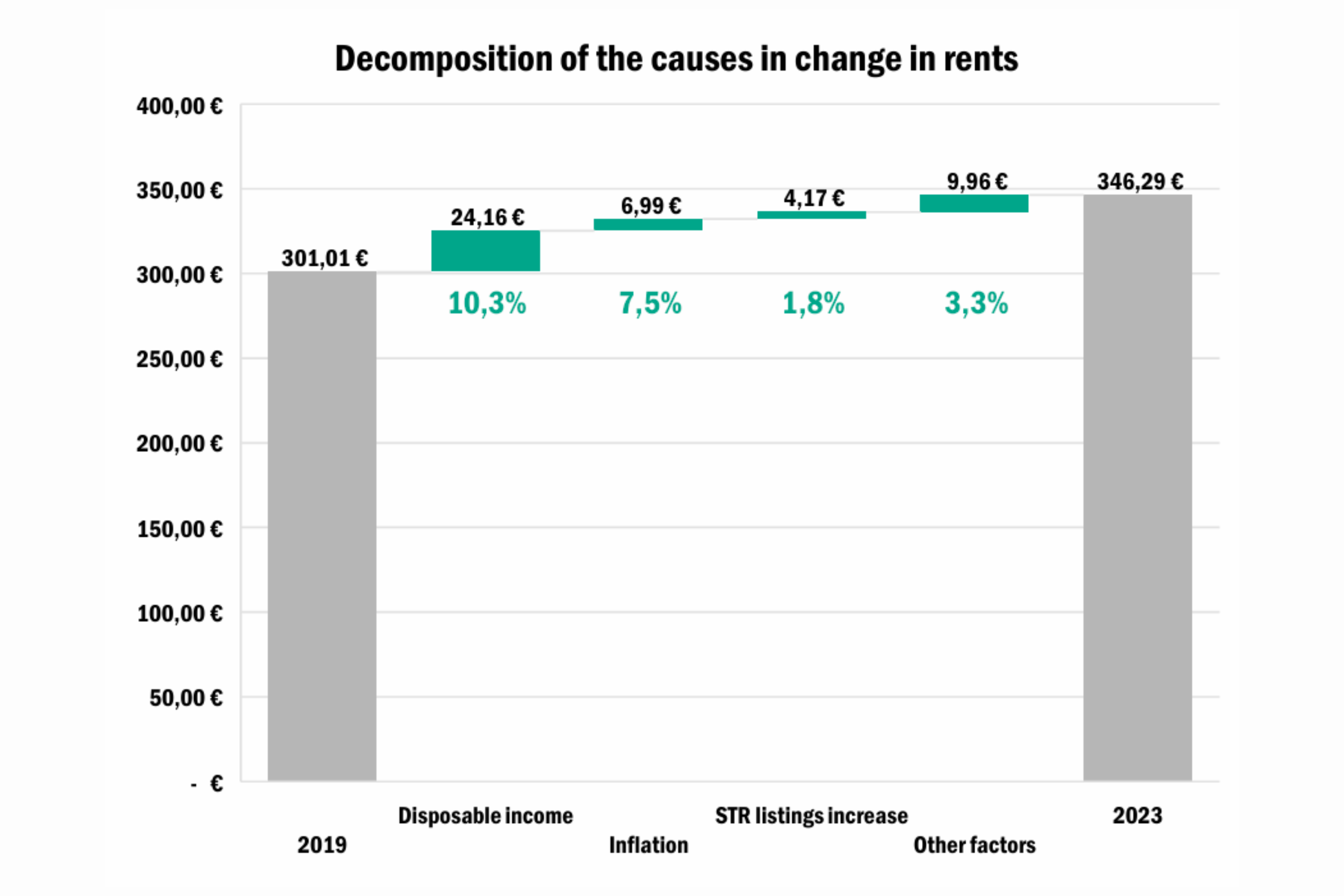Over the past few days, I read the entire study by ELTRUN (Athens University of Economics and Business) on short-term rentals (STRs) in Greece. And as I read, one thought kept coming back to me: we’ve built an entire public debate around STRs based on impressions, headlines, and hearsay – not on data.
But this study brings numbers to the forefront. And once you look the data straight in the eye, the picture changes – radically.
In this article, we’ve selected the most critical insights to highlight and discuss. You can access the full study via this link: ‘The Economic and Housing Impact of Short-Term Rentals in Greece‘.
So what does the data actually say?
🔹 Short-term rentals account for 4.5%-5.4% of Greece’s GDP

The total economic contribution of STRs in Greece is estimated between 4.5% and 5.4% of national GDP, supporting over 108,000 jobs either directly or indirectly.
Source: ELTRUN – AUEB, “The Economic and Housing Impact of Short-Term Rentals in Greece”, May 2025, p. 9.
This translates to more than €11 billion per year – about 1/20 of the total economy. We’re talking about an entire sector with substantial weight, supporting not just tourism, but a wide range of industries: transportation, food service, retail, entertainment.
🔹 95,000+ jobs supported by STRs
Roughly 50,000 direct and another 45,000 indirect jobs are created or sustained by short-term rentals – from cleaners and maintenance professionals to restaurant staff, drivers, and experience providers.
This isn’t about “a few people making easy money.” It’s about a vast income network stretching into every corner of the country.
🔹 Only 0.4%-1% of homes are used exclusively as STRs
This might be the most surprising figure for those who claim “everything’s turned into an Airbnb.” Out of 6.6 million homes in Greece, only about 20,000 are used exclusively for STRs, according to the study.
Our own estimate puts the number closer to 40,000 – still well under 1%. The rest are permanently inhabited homes rented occasionally.
🔹 2.28 million vacant homes – 3rd highest vacancy rate in the EU


Greece has the third highest residential vacancy rate in the EU (34.5%), with 2.28 million homes sitting empty or unused.
Source: ELTRUN – AUEB, May 2025, p. 18.
This is the real, “forgotten” problem. We don’t have a housing shortage – we have millions of vacant, poorly maintained, and unutilized properties. STRs can breathe life into these homes and generate income for owners who would otherwise let them decay.
🔹 The vast majority of hosts are private individuals with 1-2 properties
Forget the stereotype of the large-scale investor. Most people involved in short-term rentals are ordinary homeowners – they might have a holiday home, or a flat inherited from their grandmother, and are simply trying to supplement their income.
It’s also worth noting that although many listings appear with an AMA (Property Registration Number) and the owner listed as the admin host, in reality, they may be managed by property management companies providing hosting services. This is something that research has no easy way of detecting, as it relies on official data and press releases from the Independent Authority for Public Revenue (AADE).
Our own estimates suggest that around 20-25% of active listings on these platforms are managed by professional property management companies.
🔹 STRs absorb excess tourism demand when hotels are at capacity
During peak months (July to September), hotel occupancy in Athens, the islands, and other tourist destinations often exceeds 90%.
STRs fill the gap – without them, the tourism industry wouldn’t be able to cope, and Greece would be missing out on billions in revenue.
🔹 Only 9% of owners are willing to switch to long-term rentals
Most STR property owners either live in the homes themselves or use them periodically. Even if STRs were banned, these properties would likely not shift to long-term rentals – they’d simply sit empty.
🔹 The impact of STRs on rental prices is less than 1.8%

According to the study, STRs account for just 1.8% of the increase in rental prices between 2019 and 2023.
By far the largest factor is the decline in disposable income, responsible for over 10% of the rise.
Source: ELTRUN – AUEB, May 2025, p. 41.
In other words: STRs are not to blame for high rents. That is now clearly and repeatedly documented. The real problem is stagnant wages. Rental prices in Greece are among the lowest in the EU – but the percentage of income spent on housing is the highest.
💡 So… what should we do?
Instead of demonizing short-term rentals, let’s focus on what we can actually improve:
🔧 Tools that help property owners stay legal, efficient, and transparent
Platforms like Hosthub help hosts and property managers automate regulatory and tax compliance – making it easier for them to follow the rules, and ensuring the state doesn’t miss out on revenue due to undeclared listings.
🏛️ Policy decisions based on real data – not sensationalism
Studies like this one are exactly the kind of foundation we need.
In recent years, most restrictions and taxes imposed on STRs have been based on incorrect figures or social pressure. Only if policymakers have accurate insight into the market can they create legislation that improves competitiveness while genuinely benefiting society.
Any policy based on fear or populism is doomed to backfire.
🏡 Unlocking vacant housing stock
Those 2.28 million empty homes aren’t going to magically fill themselves. With the right incentives, we can activate thousands of properties – providing income for their owners, and housing for those in need.
💰 Incentives – not bans
The Greek Ministry of Finance’s recent tax relief bill for long-term rentals was a step in the right direction – but poorly implemented. The criteria were so narrow and restrictive that few could benefit, and the impact was minimal. Hopefully, research like this cancan support policy teams within the Greek government in redesigning more impactful measures.

📦 Public + EU-backed housing initiatives
New programs, supported by public and EU funding, are being planned to repurpose unused government buildings into affordable housing for vulnerable groups, young workers, and students.
At the same time, we’re seeing signs that up to 10,000 properties from loan servicers may be made available for rent or purchase, expanding the housing supply.
These measures aim to create a solid institutional framework for reactivating idle properties and transforming them into long-term housing solutions.
Short-term rentals are not the problem – they’re part of the solution.
Greece doesn’t have a short-term rental problem. Greece has a housing policy problem. It has an income problem. It has a public sector inertia problem.
The sooner we realize this, the sooner we can build a fairer, more sustainable model for housing and hospitality – for everyone.
📝 This opinion piece is based on the May 2025 study by ELTRUN – Athens University of Economics and Business, titled “The Economic and Housing Impact of Short-Term Rentals in Greece”.



